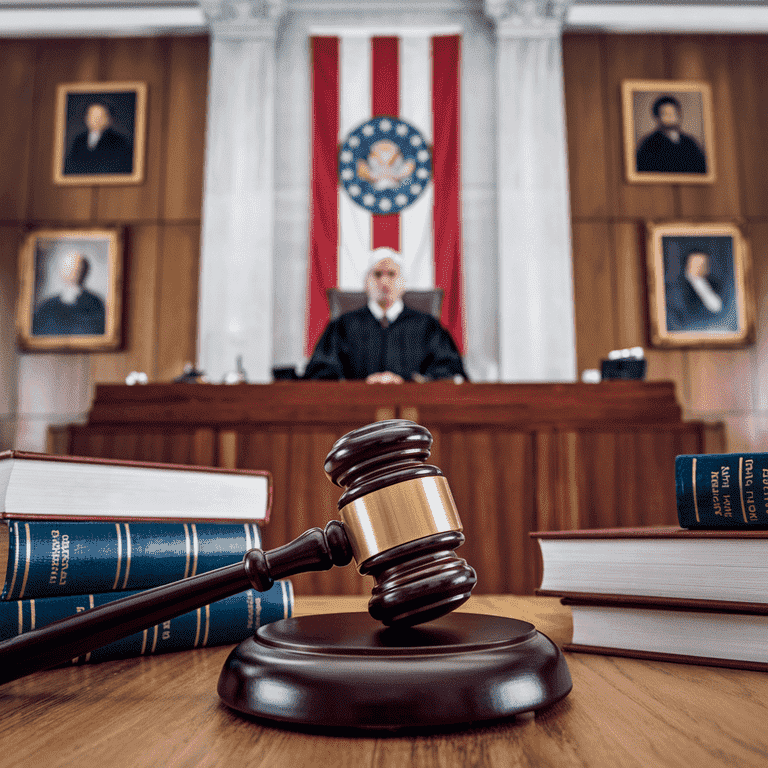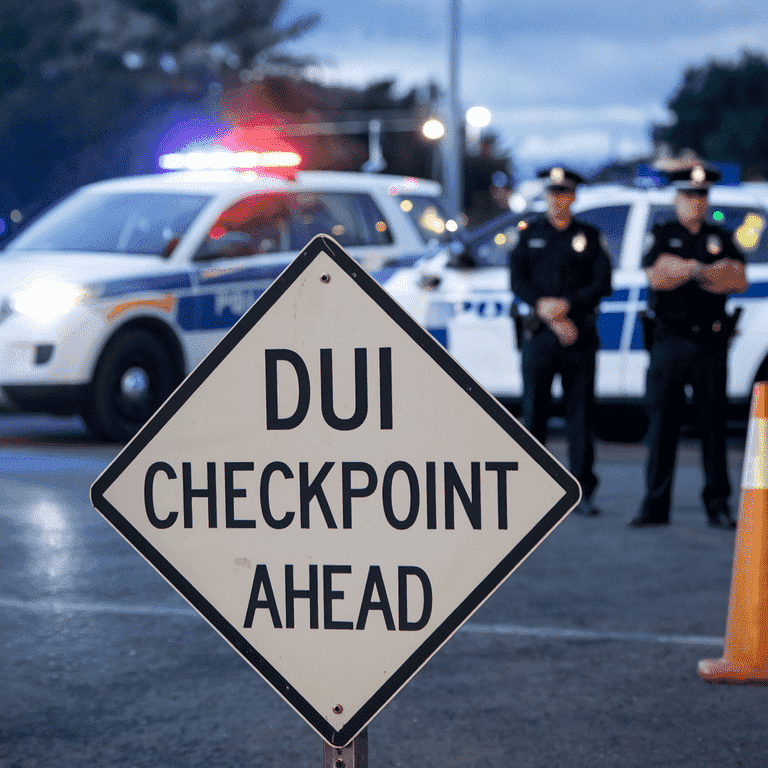Understanding Nevada DUI Law: Key Insights and Guidelines
Overview of DUI Laws in Nevada
Driving under the influence (DUI) is a serious offense in Nevada. Understanding the state’s DUI laws is vital for residents. A DUI can lead to severe consequences, both legal and personal.

 Definition of DUI
Definition of DUI
In Nevada, a DUI occurs when a person operates a vehicle while impaired by alcohol or drugs. This includes illegal drugs, prescription medications, and over-the-counter drugs.
Blood Alcohol Concentration (BAC) Limits
Nevada sets clear limits for Blood Alcohol Concentration (BAC):
- General Limit: 0.08% for drivers aged 21 and over.
- Commercial Drivers: 0.04%
- Underage Drivers: 0.02%
These limits apply to all drivers, including those operating vehicles like motorcycles or commercial trucks.
Importance of Understanding DUI Laws
Being aware of DUI laws can help you make informed decisions. Knowing the laws can prevent unintended consequences. It can also guide you if you find yourself facing a DUI charge.
Types of DUI Offenses
Nevada recognizes several types of DUI offenses. Each carries different implications and penalties.
Standard DUI
A standard DUI is the most common offense.
Definition and Penalties
A standard DUI charge occurs when a driver’s BAC is 0.08% or higher. Penalties for a first offense typically include:
- Jail Time: 2 days to 6 months
- Fines: $400 to $1,000
- License Suspension: 90 days
First Offense vs. Subsequent Offenses
Penalties increase with subsequent offenses:
| Offense | Jail Time | Fines | License Suspension |
|---|---|---|---|
| 1st | 2 days to 6 months | $400 to $1,000 | 90 days |
| 2nd | 10 days to 6 months | $750 to $1,000 | 1 year |
| 3rd | 1 to 6 years | $2,000 to $5,000 | 3 years |
Aggravated DUI
An aggravated DUI involves more severe circumstances.
Definition and Circumstances
Aggravated DUI occurs under specific conditions, such as:
- Driving with a BAC of 0.18% or higher
- Causing injury or death to another person
- Having a minor in the vehicle during the offense
Increased Penalties
The penalties for aggravated DUI can be harsh, often resulting in:
- Jail Time: Up to 6 years
- Fines: Up to $5,000
- License Revocation: 3 years or more
DUI with Injury or Death
When a DUI results in injury or death, the legal ramifications escalate dramatically.
Legal Implications
A DUI causing injury can lead to felony charges. This may result in:
- Prison Time: Significant prison sentences (1 to 20 years)
- Restitution: Financial compensation to victims
- Long-Term Consequences: Permanent criminal record
Penalties and Consequences
The consequences of a DUI with injury or death can severely impact one’s life, including:
- Long-lasting Criminal Record: Affecting employment and housing
- Increased Insurance Rates: Making coverage much more expensive

Consequences of a DUI Conviction
A DUI conviction carries several consequences that can affect many aspects of life.
Criminal Penalties
The criminal penalties for a DUI conviction can be severe.
Jail Time
- First Offense: 2 days to 6 months
- Subsequent Offenses: Up to 6 years, depending on severity
Fines and Restitution
Fines can range widely based on the offense:
- First Offense: $400 to $1,000
- Subsequent Offenses: Up to $5,000, plus possible restitution to victims
Community Service
Judges may also order community service hours, often ranging from 48 to 100 hours, especially for repeat offenders.
Administrative Penalties
In addition to criminal penalties, administrative penalties can apply.
License Suspension and Revocation
The DMV may impose a license suspension or revocation:
- First Offense: 90 days suspension
- Second Offense: 1 year suspension
- Third Offense: 3 years revocation
Ignition Interlock Devices
Judges often require the installation of an ignition interlock device (IID) for repeat offenders. This device prevents a vehicle from starting if the driver’s BAC exceeds a predetermined level.
Impact on Insurance Rates
A DUI conviction can lead to significant increases in car insurance premiums.
How a DUI Affects Insurance Premiums
Insurance companies often view a DUI as a serious risk. This can lead to:
- Higher Premiums: Rates may double or triple after a DUI.
- Difficulty Finding Coverage: Some insurers may refuse to cover drivers with a DUI on record.
Long-Term Effects on Coverage
A DUI can stay on your record for up to 10 years, affecting insurance rates and options. This long-term impact emphasizes the importance of avoiding DUI charges altogether.
DUI Arrest Process in Nevada
Understanding the DUI arrest process is essential for anyone who might find themselves in this situation. The process can be overwhelming, but knowing what to expect can help.
Stages of a DUI Stop
A DUI stop typically involves several key stages. Here’s a breakdown:
Initial Traffic Stop
When a law enforcement officer suspects a driver is under the influence, they may initiate a traffic stop. Reasons for the stop can include:
- Swerving or erratic driving
- Speeding
- Running a red light
Field Sobriety Tests
Once stopped, the officer may ask the driver to perform field sobriety tests. These tests assess coordination and balance. Common tests include:
- Horizontal Gaze Nystagmus: Following an object with the eyes.
- Walk-and-Turn Test: Walking a straight line heel-to-toe.
- One-Leg Stand Test: Standing on one leg for 30 seconds.
If a driver fails these tests, the officer may suspect DUI.
Breath and Blood Testing
If the officer believes the driver is impaired, they will likely request a breath test or blood test to determine BAC. Here’s how these tests work:
- Breath Test: Administered using a breathalyzer, providing immediate results.
- Blood Test: Involves drawing blood to measure BAC, typically sent to a lab for analysis.
Rights During a DUI Stop
It’s important to know your rights during a DUI stop. These rights include:
- Right to Remain Silent: You don’t have to answer questions about where you’ve been or how much you’ve had to drink.
- Right to Legal Counsel: You can request an attorney before answering any questions.
Being aware of your rights can help protect you during the encounter.
Common Mistakes During a DUI Stop
People often make mistakes that can impact their case. Here are some common pitfalls:
- Incriminating Yourself: Providing too much information can lead to self-incrimination. Keep your answers brief.
- Refusing Testing: While you can refuse a breath or blood test, this may lead to automatic penalties, like license suspension.
- Failing to Remain Calm: Remaining calm can help de-escalate the situation. Avoid arguing or acting confrontational.

Defenses Against DUI Charges
If you’re charged with a DUI, it’s important to know that you have options. Various defenses can be used to challenge the charges.
Lack of Probable Cause for the Stop
One of the most common defenses is questioning the legality of the initial traffic stop. If the officer did not have a valid reason to stop you, the evidence gathered may be inadmissible in court.
Improper Administration of Tests
Breathalyzer and field sobriety tests must be administered correctly. If they aren’t, your results could be flawed.
- Breathalyzer Inaccuracies: Calibration issues or improper use can lead to inaccurate results.
- Blood Test Issues: Contamination or improper handling of blood samples can impact the reliability of results.
Medical Conditions Affecting Results
Certain medical conditions can affect BAC readings. For example:
- Diabetes: Can produce elevated acetone levels, falsely raising BAC.
- Gastroesophageal Reflux Disease (GERD): Can cause alcohol to re-enter the mouth, affecting breath test results.
Other Legal Defenses
There are additional defenses that can be employed based on the circumstances of your case, such as:
- Unlawful Search and Seizure: If evidence was obtained unlawfully, it may be challenged in court.
- Mistaken Identity: Establishing that you were not the driver can also serve as a valid defense.
Steps to Take After a DUI Arrest
Facing a DUI arrest can be daunting, but taking the right steps can make a difference in your case. Here’s what to do:
Immediate Actions to Consider
Your first actions after an arrest can have a significant impact.
- Contacting a Lawyer: Reach out to a legal professional as soon as possible. They can guide you through the process.
- Gathering Evidence: Start collecting any evidence that might support your case. This includes witness statements and any relevant documentation.
Preparing for Court Appearances
Understanding what to expect in court can reduce anxiety.
- Understanding the Court Process: Familiarize yourself with the court’s procedures and what will happen during your hearing.
- Importance of Legal Representation: Having an attorney can help you navigate the system and advocate on your behalf.
Possible Plea Options
If you decide to plead, consider the following options:
- Plea Bargains: Your attorney may negotiate with the prosecution for a reduced charge or penalty.
- Alternative Sentencing Programs: Depending on the circumstances, you might qualify for programs that allow you to avoid jail time.
Understanding the Legal Process
Navigating the legal process can be confusing, but knowing what to expect can ease the burden.
Overview of the Court System in DUI Cases
In Nevada, DUI cases may be heard in different courts depending on the nature of the offense.
- District Courts: Handle felony DUI cases.
- Municipal Courts: Typically handle misdemeanor DUIs.
Timeline of a DUI Case
The timeline of a DUI case can vary, but here’s a general overview:
- Arrest: The driver is taken into custody.
- Initial Hearing: This usually occurs within a few days to a week.
- Preliminary Hearing or Arraignment: Involves the formal reading of charges.
- Trial: If the case goes to trial, this can happen months later.
Several factors can affect this timeline, including court schedules and the complexity of the case.

Consequences of DUI Convictions
Getting convicted of a DUI in Nevada can lead to severe penalties. Understanding these consequences is vital for anyone facing such charges.
Criminal Penalties
The legal repercussions for DUI can vary based on factors like previous offenses and BAC levels. Here’s a breakdown of potential criminal penalties:
First Offense
- Fines: Up to $1,000
- Jail Time: 2 days to 6 months
- License Suspension: 90 days to 1 year
- DUI School: Required attendance at a DUI education program
Second Offense (within 7 years)
- Fines: $1,000 to $2,000
- Jail Time: 10 days to 6 months
- License Suspension: 1 to 3 years
- DUI School: Mandatory attendance, often longer than for a first offense
Third Offense (within 7 years)
- Fines: $2,000 to $5,000
- Jail Time: 1 to 6 years
- License Suspension: 3 years
- DUI School: Required attendance, possibly longer sessions
Administrative Penalties
Beyond criminal penalties, there are also administrative consequences. These often involve your driver’s license.
License Suspension
Your license can be suspended for:
- First Offense: 90 days to 1 year
- Second Offense: 1 to 3 years
- Third Offense: 3 years
Ignition Interlock Device (IID)
In many cases, you may be required to install an IID in your vehicle. This device requires you to pass a breath test before starting your car. Costs and maintenance for the IID can be significant, adding to the overall penalties of a DUI conviction.
Impact on Insurance
A DUI conviction can lead to increased insurance premiums. Many insurers will view you as a high-risk driver. This can mean:
- Higher rates
- Difficulty finding coverage
- Possible cancellation of your policy
Employment Consequences
A DUI conviction can affect your job prospects. Many employers conduct background checks, and a DUI may disqualify you from certain positions. This is especially true for jobs that involve driving or operating heavy machinery.
Alternatives to DUI Conviction
If you face DUI charges, there are options available that may lessen the impact. Understanding these alternatives can be beneficial.
Plea Bargaining
Plea bargains allow you to negotiate a reduced charge in exchange for a guilty plea. This can lead to lighter penalties, such as:
- Lower fines
- Shorter license suspensions
- Reduced jail time
Diversion Programs
Some counties in Nevada offer diversion programs for first-time offenders. These programs can provide an opportunity to avoid a conviction by:
- Completing treatment programs
- Attending educational classes
- Meeting other requirements set by the court
Successful completion often results in the charges being dismissed.
Deferred Sentencing
In certain situations, a judge may grant deferred sentencing. This means the court will delay sentencing while you complete specific conditions, such as:
- Attending counseling
- Completing community service
- Maintaining sobriety
If you meet these conditions, the court may reduce or dismiss the charges.

DUI Resources in Nevada
If you or someone you know is facing DUI charges, having access to resources can make a significant difference. Here are some helpful resources available in Nevada:
Legal Assistance
Finding a qualified attorney is essential. They can provide guidance and support throughout the process. Consider contacting:
- Nevada State Bar Association: Offers a lawyer referral service.
- Local Law Firms: Look for attorneys who specialize in DUI cases.
Treatment Programs
If alcohol or substance abuse is a concern, seeking help can be beneficial. Resources include:
- Nevada Division of Public and Behavioral Health: Offers information on treatment facilities.
- Support Groups: Groups like Alcoholics Anonymous (AA) provide support for individuals seeking sobriety.
Educational Resources
Understanding DUI laws and consequences is vital. Here are some resources for learning more:
- Nevada DMV: Offers information on DUI laws and penalties.
- Nevada Department of Public Safety: Provides educational materials on the impact of impaired driving.

Breaking It Down
Navigating the challenges of Nevada DUI law can be difficult. Understanding the legal process, consequences, and available options is essential for anyone facing DUI charges. Whether you are dealing with an arrest or seeking to avoid conviction, knowing your rights and resources can empower you during this difficult time.

Frequently Asked Questions
Can I refuse a breathalyzer test in Nevada?
Yes, but refusing a breathalyzer test in Nevada has serious consequences under the state’s implied consent law. Refusal can lead to an automatic driver’s license suspension, and it could also be used against you in court to suggest guilt. Additionally, officers may seek a warrant to force a blood test.
How long does a DUI stay on my record in Nevada?
A DUI conviction in Nevada stays on your criminal record for 7 years. If convicted again within this time, the penalties can increase. After seven years, you can apply to have the record sealed, but this does not happen automatically.
Can a DUI charge be reduced to reckless driving?
Yes, in some cases, DUI charges can be reduced to reckless driving through plea bargaining. This often depends on the specifics of your case, including blood alcohol content (BAC) and prior convictions. A skilled attorney may be able to negotiate this reduction for you.
Will I lose my job if I’m convicted of a DUI?
It depends on your employer and the nature of your job. Driving-related jobs may be directly impacted by a DUI conviction, as employers may be reluctant to keep someone with a history of impaired driving. Other jobs might not have direct consequences, but it’s important to review your company’s policies or employment contract.
What is the legal limit for blood alcohol content (BAC) in Nevada?
For most drivers, the legal BAC limit is 0.08%. However, for commercial drivers, the limit is lower at 0.04%, and for drivers under 21 years old, the legal limit is 0.02%.
Are there different DUI laws for drugs vs. alcohol in Nevada?
Yes, Nevada DUI laws apply to both alcohol and drugs. Driving under the influence of illegal drugs, prescription medications that impair your ability to drive, or over-the-counter medications that cause impairment is treated similarly to alcohol-related DUIs. The penalties for drug-related DUIs are often the same as those for alcohol.
Can I get a DUI in Nevada for driving high on marijuana?
Yes, you can be charged with a DUI for driving under the influence of marijuana. Even though marijuana is legal in Nevada for recreational and medical use, it is illegal to drive while impaired by it. Law enforcement may test for THC levels in your blood if they suspect impairment.
How does Nevada handle out-of-state DUI convictions?
If you have a DUI conviction from another state and are charged with DUI in Nevada, the out-of-state conviction may count as a prior offense. Nevada will recognize convictions from other states when determining whether you are a repeat offender, which could lead to harsher penalties.
Can I drive while my license is suspended for a DUI?
No, driving while your license is suspended for a DUI is illegal. If caught, you could face additional penalties, including jail time and an extension of your suspension. You may be eligible for a restricted license for essential activities like work, but you must apply for it and meet specific requirements.
How can I reinstate my driver's license after a DUI?
To reinstate your driver’s license after a DUI, you’ll likely need to:
- Complete the suspension period
- Pay reinstatement fees
- Show proof of insurance (SR-22 form)
- Complete DUI school or other court-ordered programs
Additional steps may apply depending on the specifics of your case.
What happens if I get a DUI while visiting Nevada?
If you are arrested for DUI while visiting Nevada, you will still face the same penalties as Nevada residents, including fines, possible jail time, and a license suspension. Nevada will also notify your home state, and you could face penalties there, such as a license suspension.
What is an SR-22, and do I need one after a DUI?
An SR-22 is a certificate of insurance that proves you have the minimum required car insurance. After a DUI, Nevada typically requires drivers to file an SR-22 form to get their license reinstated. This is often required for a certain period, typically three years, and can lead to higher insurance premiums.
Can I get a DUI expunged from my record in Nevada?
No, Nevada law does not allow DUI convictions to be expunged. However, after 7 years, you can apply to have the record sealed, which removes it from public view, though it can still be accessed by certain legal authorities.
Are DUI checkpoints legal in Nevada?
Yes, DUI checkpoints are legal in Nevada. Police are allowed to stop vehicles at predetermined locations to check for impaired drivers. These checkpoints are typically announced in advance, but the police can set them up at their discretion.

Additional Resources for You
Our lead attorney, Molly Rosenblum Allen, Esq., has also created a range of other resources to support you during challenging times. If you’re navigating DUI-related concerns, these guides can offer valuable insight:
Marijuana DUI: Understanding the specifics of DUI charges related to marijuana use in Nevada.
Nevada DUI Law: A comprehensive guide to the DUI laws in Nevada, explaining your rights and potential penalties.
Las Vegas Legal Alcohol Limit: Learn about the legal alcohol limits for drivers in Las Vegas and what happens if you’re over the limit.
DUI Defense Strategies: Explore effective strategies to defend against DUI charges and protect your legal rights.
These resources are here to guide you through difficult moments and offer clarity on Nevada’s DUI laws.

Offsite Resources You May Find Helpful
Here are seven offsite resources that provide information about DUI laws and consequences in Nevada:
FindLaw: This online resource provides free legal information, a lawyer directory, and other resources on a wide range of legal topics, including DUI laws and penalties.
Justia: Justia offers free legal information, a directory of attorneys for various legal issues, and a specific section on DUI and DWI laws and penalties.
Avvo: This website provides a directory of lawyers, legal advice, and other resources on a broad range of legal topics, including DUI and its consequences.
Nolo: Nolo provides legal information to consumers and small businesses, including articles, blogs, FAQs, and news on DUI laws and consequences.
LegalMatch: This online legal matching service helps individuals find lawyers in their area and provides advice and resources on criminal law matters, including DUI.
The Nevada Bar Association: The official website of the Nevada State Bar offers resources for finding a lawyer, including those who specialize in DUI cases.
Nevada Department of Motor Vehicles: The official website for the Nevada DMV provides information about DUI laws, penalties, and driver’s license issues related to DUI convictions in Nevada.

What's Next?
Are you facing a DUI charge in Las Vegas?
Do you need to hire a criminal defense or DUI lawyer?
Don’t fret; the Rosenblum Allen Law Firm has got your back. Our experienced and skilled attorneys team can help you fight for fair treatment under the law.
We take our responsibility to our clients very seriously, as we believe that everyone is entitled to a strong legal defense – no matter their circumstances or situation.
So don’t hesitate! With The Rosenblum Allen Law Firm on your side, you’ll be well represented against any DUI charges brought against you in Las Vegas.
Call us today at (702) 433-2889 and start building your case now!



